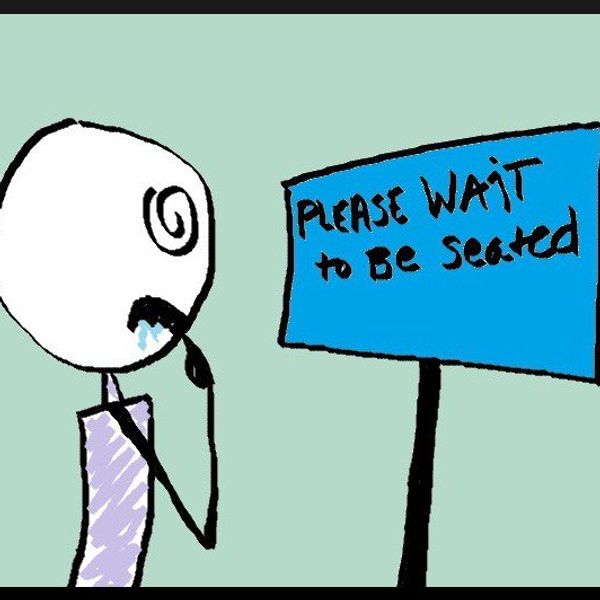I count myself amongst the unlucky population of college students who have no choice but to make their money at summer jobs in restaurants. Granted, my last sit-down restaurant gig was a step up from the fast food joint I labored at in high school. I generally prefer greeting customers in person over arguing with them over a drive-thru intercom. However, I encountered a vast share of struggles working as a hostess.
This day and age has brought so much awareness to how important it is to be kind to your servers and tip them well. Don't get me wrong; I agree with and support this movement fully. I could go on for ages about the importance of treating waiters and waitresses with respect. With this, though, there is an extreme lack of recognition for valuing the proper treatment of hosts and hostesses.
Thus, the foundation must be laid somewhere. Here are ten things we hosts experience on the daily, that we wish the public was aware of:
1. When a customer asks to sit somewhere that breaks rotation:
What too many people don't understand is that restaurants follow something called rotation. Put simply, it means that there are certain servers assigned to certain sections. Thus, we can't throw too many customers at a single section at one time, because the servers would get overwhelmed. It's also how we make sure each server gets a fair number of tables. So when you ask to be seated near the window and your hostess grimaces...it's because you just made a lot of people's jobs a lot more difficult.
2. When it's too busy to greet AND seat without losing your sanity:
It is unbelievably stressful when customers get mad at us for not seating them in their desired perameter of time. Sometimes there's only one hostess on duty, and it's our job to greet each customer, seat them, and still check up on our servers to make sure they aren't overwhelmed. There just isn't enough time in one shift.
3. When customers seat themselves:
This is possibly one of the most irksome parts of the restaurant business. There is a host stand for a reason! It does not matter if there isn't a host up there at that exact moment. It does not matter if you are in a hurry. If you seat yourself, you have just thrown off the groove of servers and cooks alike. Way to go.
4. When servers blame you for their lack or excess of tables:
Oh servers, how I empathize with you...but please, do the same for me. We hosts are trying our best to make sure you aren't too busy or have too few tables. Something is bound to go wrong each night, but don't assume it's automatically our fault. We're all in the same boat here.
5. When a customer asks, "Then why are there all these empty tables?"
Scenario: You've just asked if you can have a table on the patio. Your host responds that unfortunately, they cannot seat any customers there right now. The worst possible thing you can do in that moment, is ask why. Because guess what? You know nothing about how that restaurant is run. It doesn't matter that there are empty tables. Empty table does NOT equal available table. That section might not have enough servers, and it could be too much to ask another server to cover it. Maybe there are some tables that aren't cleaned off. That doesn't change anything. If a host says no, just roll with it.
6. When a table moves themselves after already having been seated without asking:
Here we are, back on the topic of rotation. PLEASE, JUST SIT WHERE YOUR HOST SEATS YOU. FOR THE LOVE OF ALL THAT IS GOOD IN THIS WORLD, STAY. PUT.
7. When you're afraid to do your side work because there could be an unexpected rush:
Do I roll silverware now and get out early, or wait just in case? Decisions, decisions.
8. When you look at the huge stack of menus you have to wipe:
News flash, customers: When you waste our time with all of your petty requests, that menu stack is piling up for us. We are not happy.
9. When a customer asks to sit in a section you JUST seated, and won't take anything else you offer:
If it is sincerely SO important for you to have the left-most window seat in the bar side, then you can wait. Or just not come to a sit-down restaurant at all if you're going to be this picky.
10. When a customer wants to speak to a manager:
Examine the reason that you wish to speak to a manager: Does it have something to do with the quality and/or speed of your service that night? If so, question whether any of that could have been affected by your treatment of restaurant personnel.
Hopefully, this was not only relatable for restaurant hosts, but educational for customers. The world of fine dining could be a much better place if everyone remembered these ten woes.































